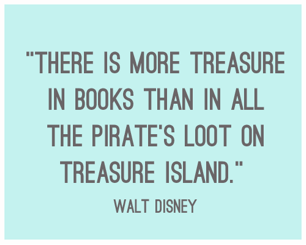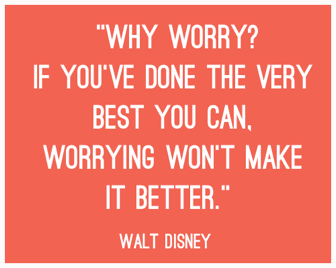Success Advice
How Walt Disney Can Help You Become Successful
The Secrets To Success: Bootlegging Disney
Before anyone panics, this is not an article about stealing Disney Classics, it’s about duplicating the success of one of the world’s greatest Entrepreneurs. It’s about Walt Elias Disney himself. Have you ever wondered how he managed to create such an overwhelmingly successful enterprise? Of course, we know he was tenacious and hard working but so are many others who don’t achieve the same level of success as Walt Disney. What are some of the thoughts and actions that made Walt, the man, so special and could we duplicate them in today’s business environment with the same upward mobility?
CONTINUING EDUCATION
 By continuing education, I simply mean reading. Walt once said,
By continuing education, I simply mean reading. Walt once said,
“There is more treasure in books than in all the pirate’s loot on Treasure Island.”
There’s little doubt that Walt loved books, the legacy he left behind is like his own treasure map to the things he loved. The level of success beyond college graduation is often in direct correlation to the amount of time spent reading. Read fiction, non-fiction, biographies and ‘how-to’s’ ….just never stop learning. Power comes from knowledge and knowledge comes from books. It always has and always will.
GET MOVING, KEEP TRYING, WORK HARD
“The way to get started is to quit talking and begin doing.”
I have no idea what the circumstances were when Walt said that but it’s a golden nugget of truth. We love to dream and talk about plans. Walt dreamed, talked and planned but he actually got up and worked too.
“Everyone falls down. Getting back up is how you learn.”
In today’s world, we’re often hampered by difficult regulations, costs, bad business partners and/or any number of negative events. Is this truly different than Walt’s day? Probably not as much as we would like to think. The rights to his first cartoon were more or less stolen from him. He didn’t pout in his easy chair for the rest of his life. He got back up and Mickey Mouse was born.
“People often ask me if I know the secret of success and if I could tell others how to make their dreams come true. My answer is, you do it by working.”
This is, or should be, common sense. After all, Walt grew up in an average working class family and saw his dad go to work daily.
- Don’t look for shortcuts.
- Be willing to invest time and effort into a job well done and success will follow.
ASK FOR HELP
“All you’ve got to do is own up to your ignorance honestly, and you’ll find people who are eager to fill your head with information.”
Plain and simple, he means ask for help. You can’t possibly know everything and should stop acting like you do. During Walt’s lifetime, America was changing constantly and becoming an industrial world leader. He lived through two world wars and saw the invention of countless gadgets and machines designed to make life easier. No one person could keep up with it all. Walt knew this and asked for help and advice from experts. I think he must also have been a good listener.
WHAT YOU KNOW
Writers are told to ‘write what you know‘ because it gives authenticity to their writing. The same is true of business. Use your own life experience and personal knowledge to your advantage.
KNOW YOUR PRIORITIES AND STOP WORRYING
 All the success in the world won’t be worth anything if your priorities are backwards.
All the success in the world won’t be worth anything if your priorities are backwards.
“A man should never neglect his family for business” is one of the best quotes from Walt Disney. He knew what his priorities were and so should you. What good is financial gain if you lose your family in the process?
“Why worry? If you’ve done the very best you can, worrying won’t make it better.”
This is excellent but difficult advice to follow. However, you’ll save yourself time, energy and possibly an anxiety attack if you do.
DREAMS REALLY DO COME TRUE
Hundreds, possibly thousands, of quotes are attributed to Walt Disney but one of my favorites is:
“All our dreams can come true if we have the courage to pursue them.”
I know better than to think ‘all’ my dreams will come true. I have some fantastic dreams. But the gist of the saying is spot on. It takes courage to fail and try again until success occurs. If you have courage, or can cultivate it, you are on your way to your dreams of wealth and success coming true.
Did You Know
This Move Can Help You Keep More of Your Income
What if keeping more of your income wasn’t about earning more, but choosing a smarter place to live?

Living more cheaply often makes the biggest difference when money is tight. If rent feels too heavy or bills climb faster than expected, changing where you live might help a lot. (more…)
Business
How to Build a Brand That Actually Connects (For Businesses of Any Size)
Brand growth in 2026 isn’t about shouting louder; it’s about clarity, consistency, and human connection that customers genuinely trust.

In the middle of a busy workday, it’s easy to view brand building as a luxury. Honestly, we often treat it like a coat of paint we apply after the house is built. But as we navigate the landscape of 2026, it’s become clear that branding is actually the foundation. (more…)
Business
High Stakes Leadership Habits That Work in Any Business
When volatility is normal and pressure is constant, energy sector leadership reveals the habits that help entrepreneurs build trust, adapt fast, and execute with long-term focus.

Oil and gas leaders operate in a world where mistakes can prove to be very costly. Here, timelines are tight and risks are as real as can be. As a result of all this, the sector offers useful lessons for entrepreneurs and business owners. (more…)
Shift Your Mindset
SEO Secrets That Separate Struggling Hustlers from Thriving Winners
Zero-click searches and AI Overviews are crushing old tactics – the brands building unshakable SEO authority are pulling ahead fast.

One guy pours endless hours into blog posts, tweaking meta tags, begging for links – traffic flatlines. Another quietly builds something solid, updates once a quarter with fresh proof, gets cited in AI answers… and suddenly leads roll in without him lifting a finger for ads. (more…)
-

 Business4 weeks ago
Business4 weeks agoWhy Entrepreneurs Should Care About AI Automation Testing
-

 Business4 weeks ago
Business4 weeks agoWhy Smart FMCG Entrepreneurs Outsource What They Can’t Automate
-

 Business3 weeks ago
Business3 weeks agoWhat Every Business Owner Should Know Before Investing in API Integration
-

 Did You Know4 weeks ago
Did You Know4 weeks agoThe SEO Traps Even Experienced Marketers Fall Into
-

 Business4 weeks ago
Business4 weeks agoWhy Smart Entrepreneurs Are Quietly Buying Gold and Silver
-

 Business2 weeks ago
Business2 weeks agoHow Smart Brands Use Instagram Data to Outperform Competitors
-

 Business3 weeks ago
Business3 weeks agoThe Paradox of Modern Work: Can Tech Make Us More Human?
-

 Business2 weeks ago
Business2 weeks agoHow AI Agents Can Quietly Expose Your Business to Serious Risk





























13 Comments